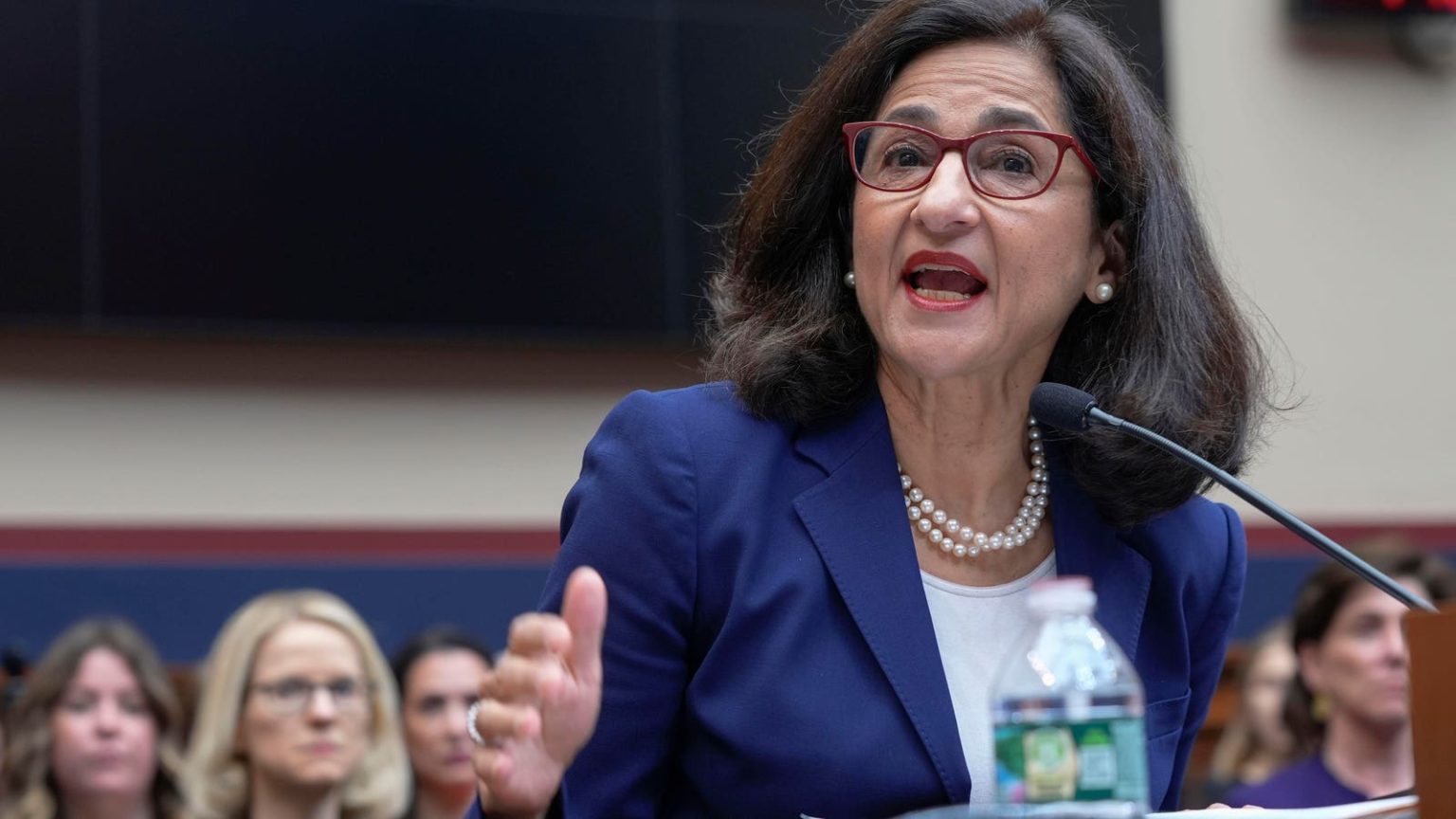The Columbia University Faculty of Arts and Sciences has taken a symbolic stand against university President Nemat Shafik by casting a vote of no confidence, highlighting the division within the school community caused by recent pro-Palestinian protests. The resolution, passed by 65% of the faculty members, criticizes Shafik’s handling of the campus protests, specifically her enforcement of disciplinary actions against protesters calling for divestment from Israeli military-linked companies and her decision to involve the New York Police Department in responding to protests.
The resolution accuses Shafik of violating the university’s norms and policies by threatening to fire professors who made anti-Israel remarks and by calling the police to arrest student protesters without consulting the University Senate. The faculty believes Shafik’s actions constitute an “unprecedented assault on students’ rights” that deserves condemnation. However, the vote of no confidence does not call for Shafik’s resignation but proposes options such as censure and further investigation into the events following Hamas’ attack on Israel in October.
In response, Shafik acknowledged the anger and disappointment felt by faculty members and expressed her commitment to listening, supporting change, and repairing the divisions within the university community. She emphasized the importance of doing the hard work required to address the concerns raised by the faculty members and other university leaders. However, the faculty’s decision to cast a vote of no confidence reflects a broader discontent and the need to address the issues related to the protests and the university’s response.
The protests at Columbia University, sparked by Israel’s invasion of the Gaza Strip, have been part of a larger wave of college protests across the nation, leading to arrests and tense confrontations between protesters and police. The calls for divestment from Israeli-linked companies have raised questions about the feasibility of such actions due to the size and complexity of the companies involved. The protests have also raised concerns about antisemitic rhetoric on college campuses and the impact of the protests on events like graduation ceremonies.
This vote of no confidence against President Shafik is not an isolated incident, as similar protests and criticisms have occurred at other universities, such as Harvard, where former President Claudine Gay resigned amid criticism of her handling of antisemitism on campus. The tensions and divisions within the university community reflect broader societal debates and conflicts related to the Israeli-Palestinian conflict and the responses of academic institutions to calls for divestment and activism. As Columbia University grapples with these issues, the faculty’s vote of no confidence signals a desire for change and accountability in addressing the concerns raised by the protests.


